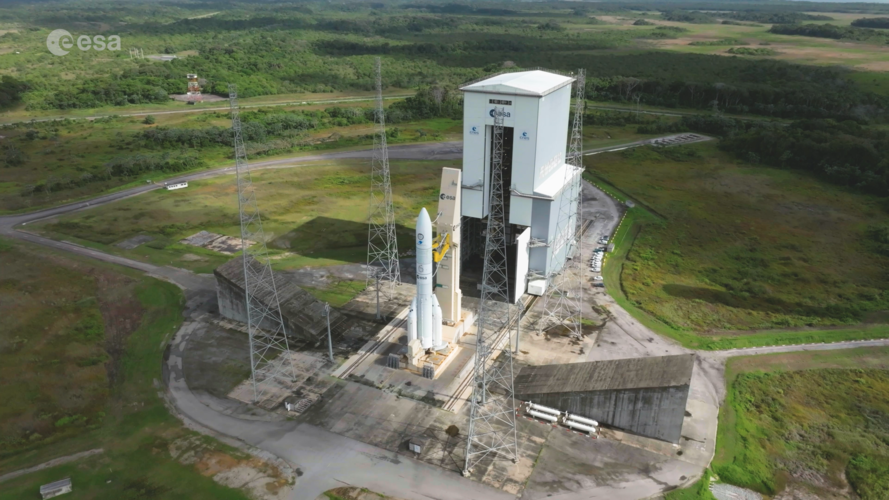On 20 June 2024 the first Ariane 6 rocket to launch into space went through its last full ‘wet dress rehearsal’ at Europe’s Spaceport in French Guiana – it provided an exciting sneak peek of what’s to come, stopping just a few seconds before engine ignition and of course, liftoff.
One of the first steps was to roll back the colossal 90-m tall Ariane 6 mobile gantry building 120 m away from the launch pad – the first moment the complete rocket stood free.
The first parts of Ariane 6 began arriving in French Guiana from continental Europe in February 2024 via the Canopée ‘spaceship’. In March, the main stage and upper stage were assembled, followed by the transfer of the two powerful P120C boosters in April.
In May, Ariane 6’s first passengers also arrived in Kourou – a varied selection of experiments, satellites, payload deployers and reentry demonstrations that represent thousands across Europe, from students to industry and experienced space actors NASA and ArianeGroup.
The payloads were integrated onto the ‘ballast’ at the end of May, and just a few days ago the ballast was fitted onto the top of the rocket and the fairing closed around it – the last time Ariane 6’s cargo would see light.
From Earth observation to technology demonstrations testing wildlife tracking, 3D printing in open space, open-source software and hardware and science missions looking for the most energetic explosions in the universe, the passengers on Ariane 6’s first flight are a testament to the rocket’s adaptability, complexity, and its role for the future – launching any mission, anywhere.



 Video:
00:03:00
Video:
00:03:00